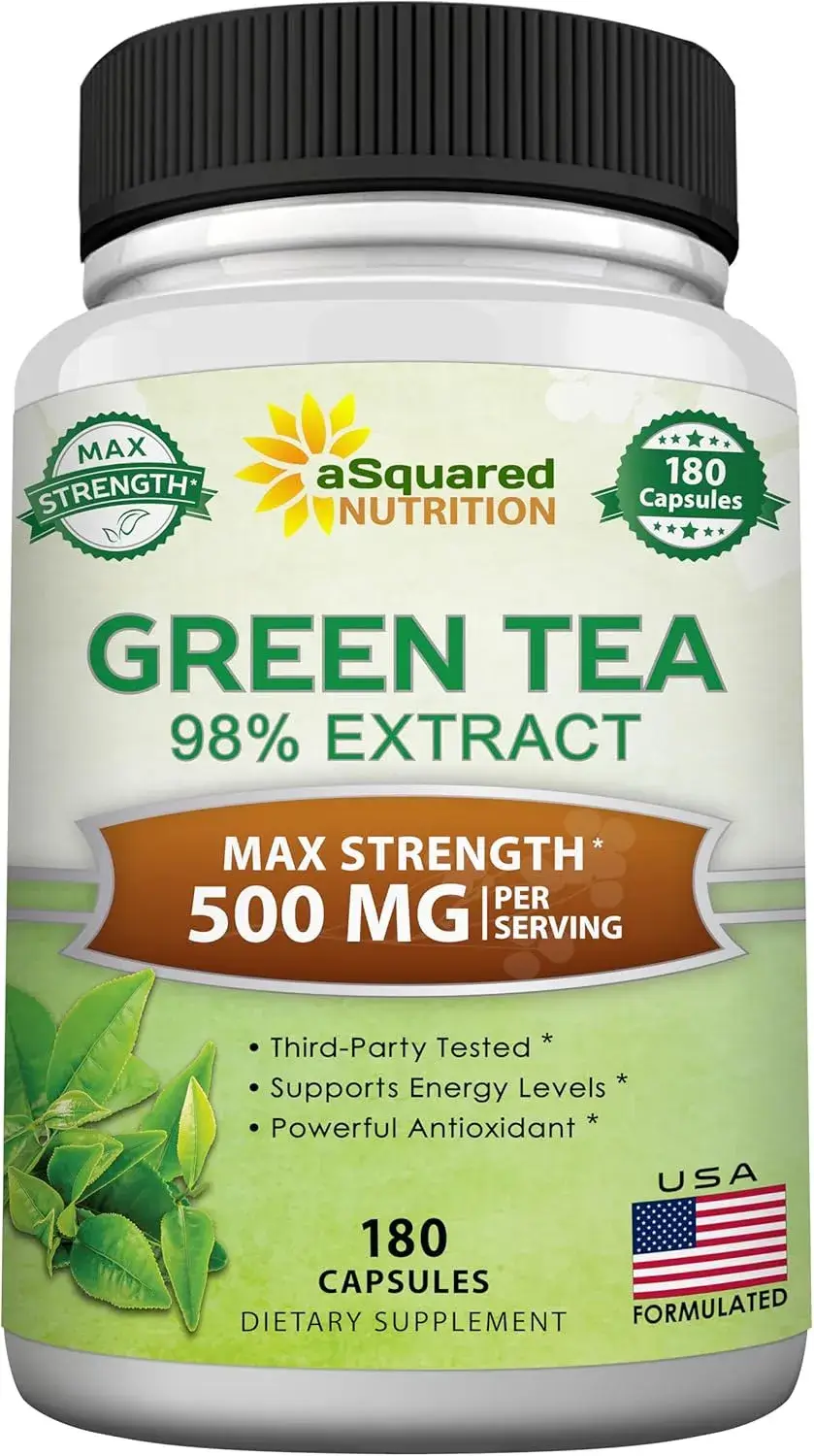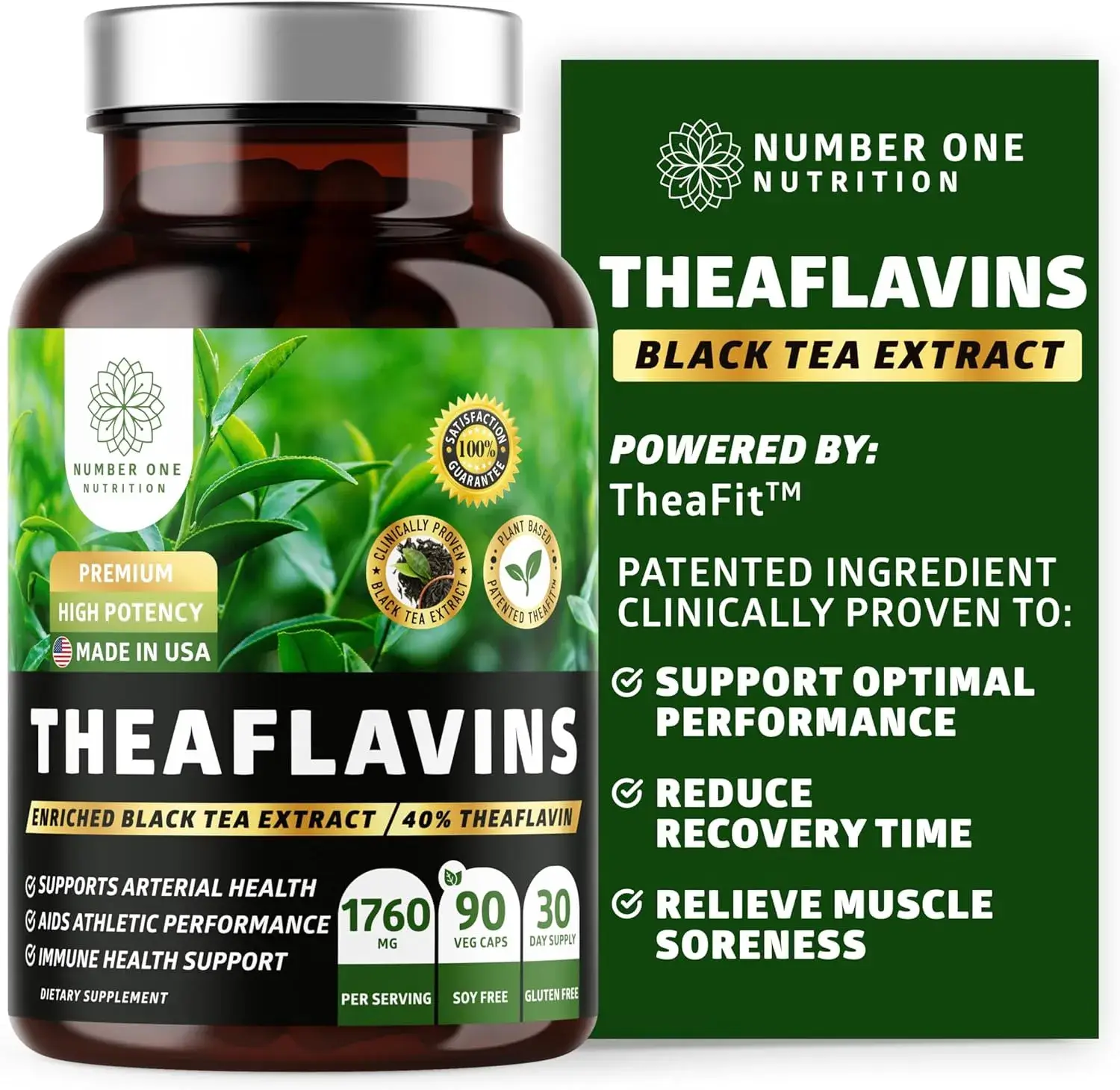Table of Contents
Thinking about a calming cup of green tea before bed? It’s a common question, and the answer isn’t as simple as a yes or no. While green tea has a lot going for it, like those healthy antioxidants, it also contains caffeine. That caffeine can mess with your sleep, and the timing of when you drink it really matters. Let’s break down whether enjoying green tea 6 hours before bed is a good idea, or if you should stick to earlier in the day.
Key Takeaways
- Green tea contains caffeine, which can make it harder to fall asleep if consumed too close to bedtime. The caffeine’s half-life means it can stay in your system for hours.
- While L-theanine in green tea can promote relaxation, it might not fully counteract the stimulating effects of caffeine for everyone, especially those sensitive to it.
- Drinking green tea 6 hours before bed is generally recommended to avoid potential sleep disruption, though individual sensitivity varies.
- Consuming liquids close to bedtime, including green tea, can lead to nighttime urination, interrupting sleep quality.
- Herbal teas or decaffeinated options are better choices if you’re looking for a warm beverage right before sleep.
Understanding Caffeine’s Impact on Sleep
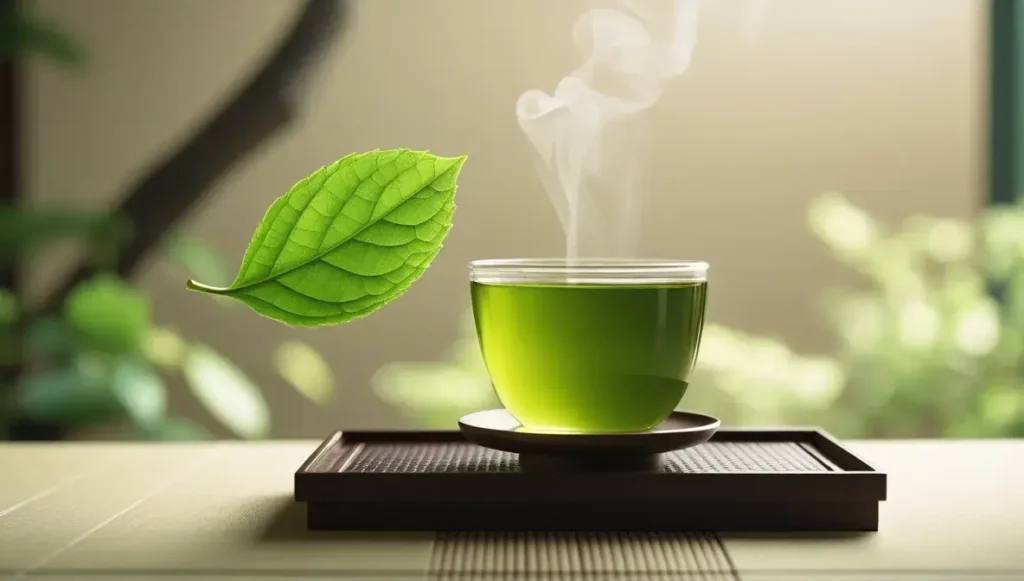
When we talk about drinking green tea, especially later in the day, the big question always comes down to caffeine. It’s the same stuff you find in coffee, and it’s known for giving you a boost. But how does that boost affect your sleep, and is it different in green tea compared to other drinks? Let’s break it down.
Caffeine’s Half-Life and Its Effect on Sleep
Caffeine doesn’t just disappear from your body the moment you stop feeling its effects. It has what’s called a half-life, which is the time it takes for your body to eliminate half of the substance. For caffeine, this is typically around 5-6 hours, though it can vary.
This means that if you drink a cup of green tea with, say, 30mg of caffeine at 5 PM, a good chunk of that could still be in your system by 10 PM or 11 PM. This lingering presence can interfere with your ability to fall asleep and stay asleep. The caffeine before sleep effects are real, and understanding this half-life is key to figuring out when it’s okay to have your tea.
Individual Sensitivity to Caffeine
Now, here’s where it gets personal. Not everyone reacts to caffeine the same way. Some people can drink coffee right before bed and sleep like a log, while others get jittery from a single cup of green tea in the afternoon. This sensitivity is influenced by genetics, your regular caffeine intake, and even your metabolism. If you know you’re particularly sensitive, you’ll need to be much more mindful of when you consume caffeinated beverages like green tea.
The Role of L-Theanine in Green Tea
Green tea isn’t just about caffeine, though. It also contains an amino acid called L-theanine. This compound is pretty interesting because it’s known for promoting relaxation without causing drowsiness. It works by affecting brain waves and neurotransmitters, helping to create a sense of calm. Some research suggests that L-theanine might actually counteract some of the stimulating effects of caffeine, leading to a more balanced energy boost rather than a sharp spike and crash. However, the jury is still out on whether this calming effect is enough to completely negate the sleep-disrupting potential of caffeine for everyone, especially when consumed close to bedtime.
Timing Your Green Tea Consumption
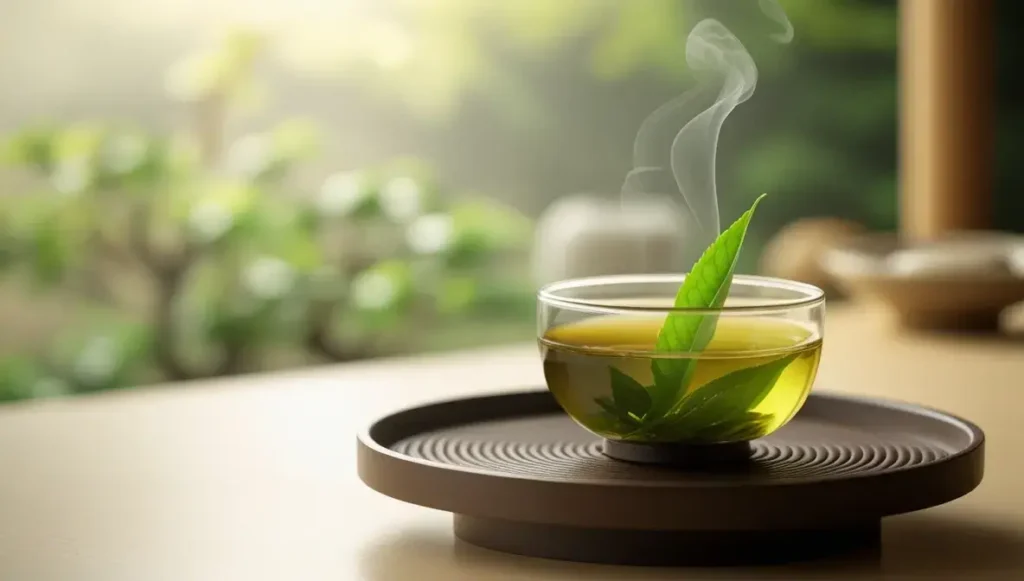
Figuring out the best time for green tea consumption can feel a bit like a puzzle, especially when you’re trying to balance its benefits with potential downsides. It’s not just about when you want to drink it, but when it actually works for you. Let’s break down the timing of green tea consumption to help you find your sweet spot.
This is where things get a little tricky. Caffeine, as we know, is a stimulant. While green tea has less caffeine than coffee, it’s still present. Caffeine has a half-life of about four to six hours, meaning half of it is still in your system that long after you’ve had your cup. So, if you’re aiming for a good night’s sleep, drinking green tea within six hours of bedtime is generally not recommended. This window is key for avoiding any potential sleep disruptions.
If you enjoy a cup of green tea in the afternoon, aim to finish your last serving at least six hours before you plan to go to sleep. For example, if you typically head to bed around 10 or 11 PM, try to wrap up your green tea drinking by 2 to 4 PM. This gives your body ample time to process the caffeine. Some people with a higher tolerance might get away with drinking it a bit later, but it’s a good general guideline to follow.
For many, the morning is the ideal time for green tea. It can help with focus and alertness without the jitters sometimes associated with coffee, thanks to the L-theanine in the tea. Drinking it a couple of hours after waking up can be a good way to start your day. Early afternoon is also a good time, especially if you’re looking for a gentle energy boost to get through the rest of your workday. It’s also often suggested to drink green tea between meals rather than with them, to avoid interfering with the absorption of certain minerals like iron.
👉 Discover the Premium Green Tea Proven to Elevate Your Health 👈
Potential Downsides of Evening Green Tea
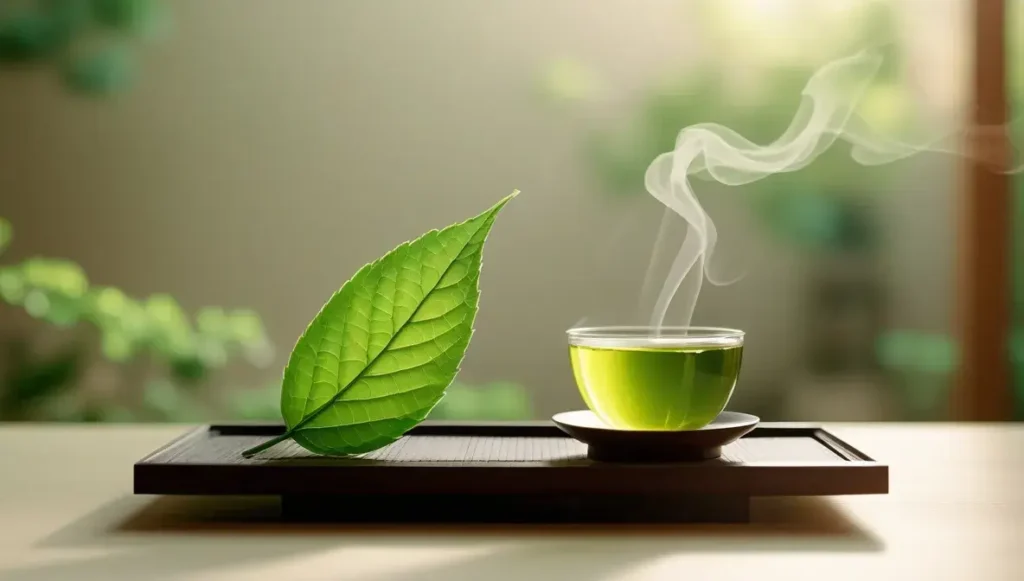
While green tea is often praised for its health benefits, drinking it too close to bedtime can lead to a few unwelcome consequences. It’s not all about the benefits of green tea at night; we also need to consider the potential drawbacks. The effects of drinking tea at night can vary greatly from person to person, and for some, the downsides might outweigh any perceived benefits.
Disruption of Sleep Quality
The most significant concern with evening green tea is its caffeine content. Even though it has less caffeine than coffee, it’s still a stimulant. For individuals sensitive to caffeine, this can make falling asleep much harder. Caffeine works by blocking adenosine, a neurotransmitter that promotes sleepiness. This can lead to a feeling of being wired when you should be winding down. Even six hours before bed, the caffeine can still interfere with your sleep architecture.
Increased Nighttime Urination
Drinking any liquid close to bedtime can increase your need to visit the bathroom during the night. Green tea, being a fluid, is no exception. This can lead to fragmented sleep, where you wake up multiple times. Waking up to urinate can disrupt your sleep cycle, making it difficult to return to sleep and potentially leaving you feeling groggy the next morning. This is especially true if you consume caffeinated beverages within a couple of hours of hitting the hay.
Stimulating Effects on the Nervous System
Beyond caffeine, green tea contains other compounds that can affect the nervous system. While L-theanine is known for its calming effects, the overall balance of stimulants and relaxants can still be tipped towards arousal for some people. This can manifest as restlessness or an inability to switch off your brain, making it tough to drift off into sleep. If you’re looking for ways to relax before bed, exploring caffeine-free options might be a better bet.
Green Tea’s Beneficial Compounds
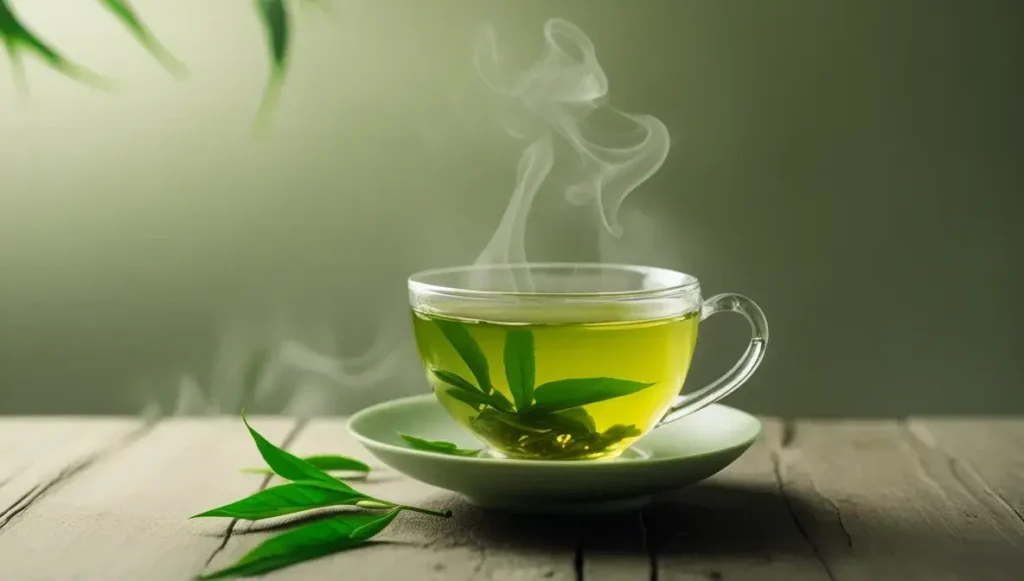
Green tea isn’t just a tasty drink; it’s packed with stuff that’s good for you. Think of it as a little health boost in a cup. These compounds are why people have been drinking it for ages, not just for the flavor but for what it does inside.
Antioxidants and Their Properties
One of the big deals with green tea is its antioxidants. These are like tiny bodyguards that help fight off damage from things called free radicals. You know, those unstable molecules that can cause trouble in your cells over time. The main players here are a group called catechins, with EGCG (epigallocatechin gallate) being the most famous. These antioxidants are thought to be behind many of green tea’s health perks, from protecting your cells to potentially lowering the risk of certain diseases.
Amino Acids for Relaxation
Besides the antioxidants, green tea has some interesting amino acids. The most talked-about one is L-theanine. This is pretty cool because it’s known for its calming effects. It can help you feel more relaxed without making you drowsy. It works by influencing brain activity, kind of like taking the edge off. This is a big reason why some people find green tea helps them focus better without feeling jittery, and it might even help with stress.
Nutrient Absorption Considerations
Now, while green tea is great, there’s a small catch. Some of the compounds in it, particularly tannins, can sometimes get in the way of your body absorbing certain minerals, especially iron. This isn’t usually a problem if you eat a balanced diet, but if you have iron deficiency or are concerned about mineral intake, it’s something to keep in mind. It might be best to enjoy your green tea between meals rather than right with them, just to be safe.
👉 Experience the Revolutionary Taste of Certified Elite Green Tea Today 👈
Alternatives to Green Tea Before Bed
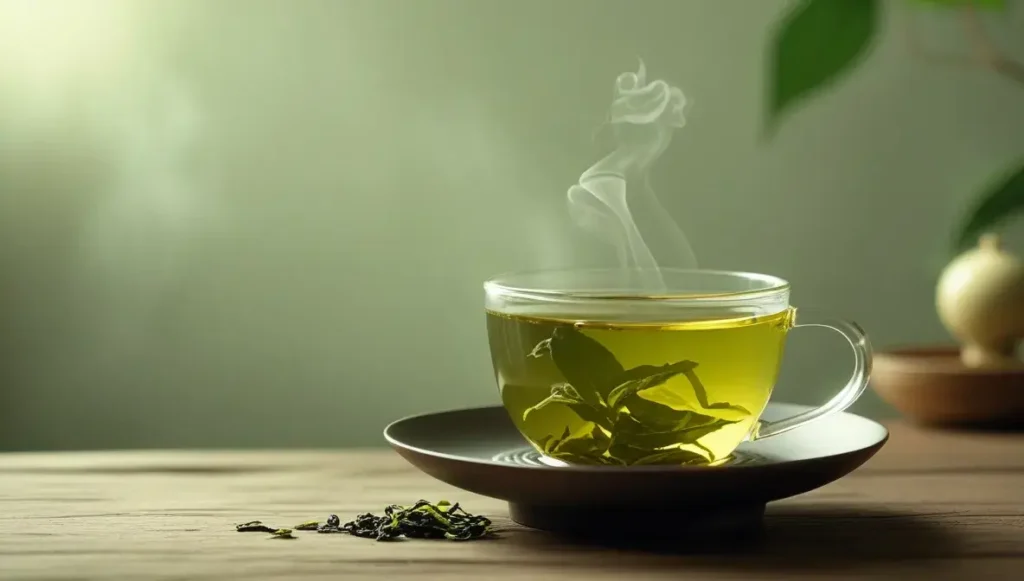
So, we’ve talked about why drinking green tea too close to bedtime might not be the best move, especially if you’re sensitive to caffeine. The caffeine in green tea, even though it’s less than coffee, can still mess with your sleep cycle. Plus, drinking any liquid right before bed can mean more trips to the bathroom, which totally interrupts your rest. If you’re looking for a warm, comforting drink to wind down with, there are some fantastic options out there that won’t keep you staring at the ceiling.
Exploring Herbal Teas
Herbal teas, often called tisanes, are a great go-to when you want to avoid caffeine entirely. They aren’t made from the Camellia sinensis plant like true teas, so they’re naturally caffeine-free. Think of things like chamomile, which is famous for its calming properties, or lavender, known for its relaxing aroma. Valerian root is another popular choice, often used to help people drift off to sleep more easily. These brews are perfect for sipping in the evening without worrying about the effects of caffeine in green tea at night.
Here are a few popular choices:
- Chamomile: Gentle and soothing, often associated with relaxation.
- Lavender: Known for its calming scent and potential to ease anxiety.
- Peppermint: Can be refreshing and aid digestion, though some find it too stimulating.
- Rooibos: A South African herb that’s naturally sweet and caffeine-free.
Caffeine-Free Options
When you’re trying to avoid caffeine before bedtime, sticking to herbal infusions is your safest bet. Unlike green tea, which has caffeine in it, these options are designed to help you relax. The connection between green tea and insomnia is often due to that stimulant. So, if you’re experiencing green tea and insomnia, switching to something like peppermint or rooibos can make a big difference. It’s all about finding that perfect drink that signals to your body it’s time to wind down, rather than rev up. You can find some really lovely herbal blends specifically made for promoting relaxation.
Decaffeinated Tea Considerations
Decaffeinated green tea might seem like a good compromise, but it’s worth being a little cautious. While most of the caffeine is removed, there are usually trace amounts left. For most people, this tiny bit won’t cause issues, but if you’re particularly sensitive to caffeine or trying to completely avoid it, it might still be enough to affect your sleep.
The effects of green tea before sleep can be subtle, and even decaf might have a small impact for some. If your goal is to completely eliminate the risk of caffeine in green tea before sleep, then sticking to naturally caffeine-free herbal teas is the most reliable way to go. This helps in avoiding potential green tea side effects bedtime.
Maximizing Green Tea’s Benefits
So, you’re a fan of green tea and want to make sure you’re getting the most out of every cup. That’s smart! It’s not just about the taste, though it is pretty great. Timing and how you incorporate it into your day can really make a difference. Let’s look at how to really make green tea work for you.
Integrating Green Tea into Your Daytime Routine
Think of green tea as a gentle energy booster, not a jolt like coffee. The caffeine in green tea is released more slowly, giving you sustained energy without the jitters. This makes it perfect for your workday. It can help you stay focused and alert for longer periods. It’s a fantastic way to power through your afternoon slump. Many people find that a cup of green tea mid-morning or early afternoon helps them concentrate better on tasks. It’s also a good way to manage hunger pangs between meals, as it’s low in calories and can help curb cravings. For a real boost, try pairing it with a bit of ginger or lemon.
Green Tea for Digestion
After you’ve had a meal, especially a heavier one, a cup of green tea can be surprisingly helpful. It’s often recommended to drink it after eating because of its positive effects on digestion. It can help reduce that uncomfortable feeling of bloating and generally aid your digestive system in processing food. Some folks even find that a mint-infused green tea works wonders, as mint is known for its ability to soothe the stomach and ease cramps. It’s a simple, natural way to feel better after eating.
Sustained Energy Release
One of the coolest things about green tea is how it provides energy. Unlike coffee, which hits you fast and then leaves you crashing, green tea’s caffeine is released gradually over several hours. This means you get a steady stream of alertness and improved concentration without the peaks and valleys. This gradual release is partly due to the presence of L-theanine, an amino acid that works with caffeine to promote a calm focus. This combination is what makes green tea so unique.
It helps you stay sharp and productive for a good chunk of your day. If you’re looking for a way to maintain your energy levels without the harsh side effects of other stimulants, green tea is definitely worth considering. It’s a more balanced approach to staying energized and focused throughout your day, and it can even contribute to a sense of relaxation thanks to L-theanine.
Here’s a quick look at how green tea’s energy release compares:
| Beverage | Caffeine Release | Typical Energy Effect |
|---|---|---|
| Coffee | Rapid | Quick peak, then crash |
| Green Tea | Gradual (6+ hrs) | Sustained alertness |
So, Can You Drink Green Tea 6 Hours Before Bed?
Alright, so after all that, the short answer is probably not. While green tea has some cool health perks, that caffeine is the main thing to watch out for. It sticks around in your system for a good while, and even if you think you can handle it, it might be messing with your sleep more than you realize. Plus, drinking any liquid close to bedtime can mean more trips to the bathroom, which totally ruins a good night’s sleep. If you’re really craving a warm drink before hitting the hay, maybe stick to something caffeine-free like herbal teas. Save your green tea for the morning or early afternoon when you can actually use that energy boost.
👉 Get the Ultimate Green Tea Breakthrough for Powerful Daily Wellness 👈
Frequently Asked Questions
How long does caffeine from green tea stay in my body?
Caffeine is like a guest that overstays its welcome. About half of the caffeine you drink can still be in your system for about 4 to 6 hours. This means if you have green tea late in the day, that caffeine might still be buzzing around when you’re trying to fall asleep.
Why is drinking green tea close to bedtime a bad idea?
Green tea has caffeine, which is a stimulant. It’s like a little jolt of energy that can make it harder to relax and drift off to sleep. Plus, drinking any liquid before bed can mean more trips to the bathroom during the night, interrupting your rest.
Can the L-Theanine in green tea help me sleep?
Green tea does have an amino acid called L-Theanine, which can help you feel more relaxed and focused. While it can balance out the caffeine’s buzz, it doesn’t necessarily make you sleepy. For many people, the caffeine’s stimulating effect is still strong enough to mess with their sleep.
What are some good alternatives to green tea before bed?
If you enjoy a warm drink before bed, try herbal teas! Things like chamomile, mint, or rooibos are naturally caffeine-free and can be really soothing. They won’t give you that caffeine jolt that can keep you awake.
Is decaf green tea okay before bed?
Even decaffeinated green tea can have small amounts of caffeine left in it. If you’re sensitive to caffeine, it’s probably best to avoid it close to bedtime. Sticking to truly caffeine-free herbal teas is a safer bet for a good night’s sleep.
When is the best time to drink green tea?
Green tea is great for your health, so you don’t want to skip it entirely! Enjoy it in the morning or early afternoon. This way, you can get its benefits without worrying about the caffeine interfering with your sleep later on.
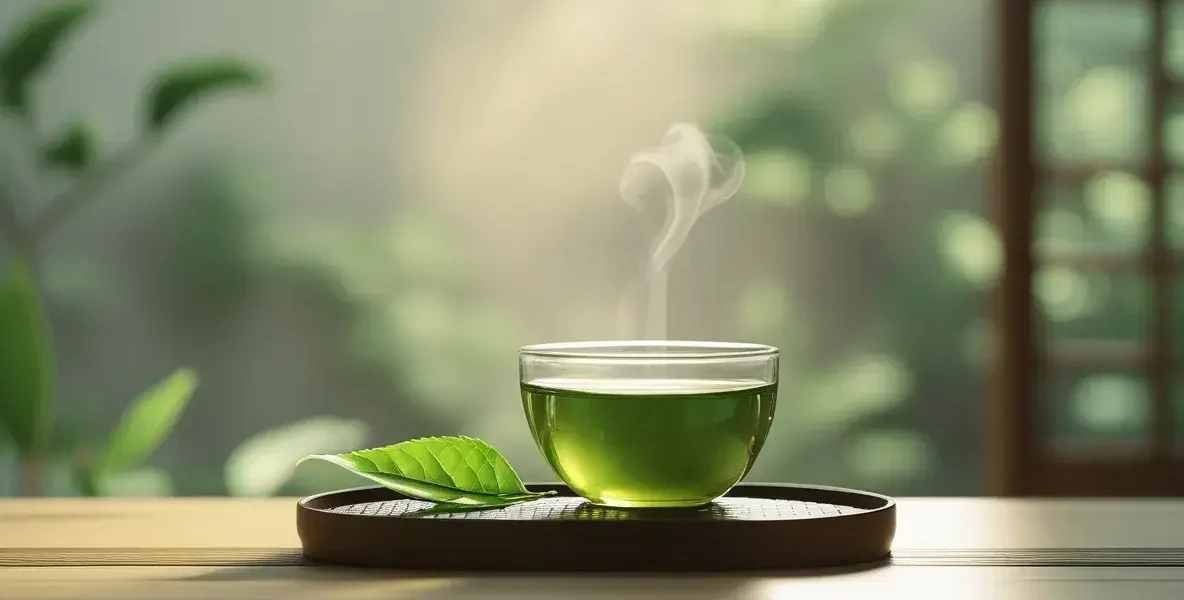





![Jasmine Tea vs Green Tea Benefits: Which Gives Better Health Results? [2025] jasmine tea vs green tea benefits](https://www.goteaworld.com/wp-content/uploads/2025/09/jasmine-tea-vs-green-tea-benefits-150x150.webp)




